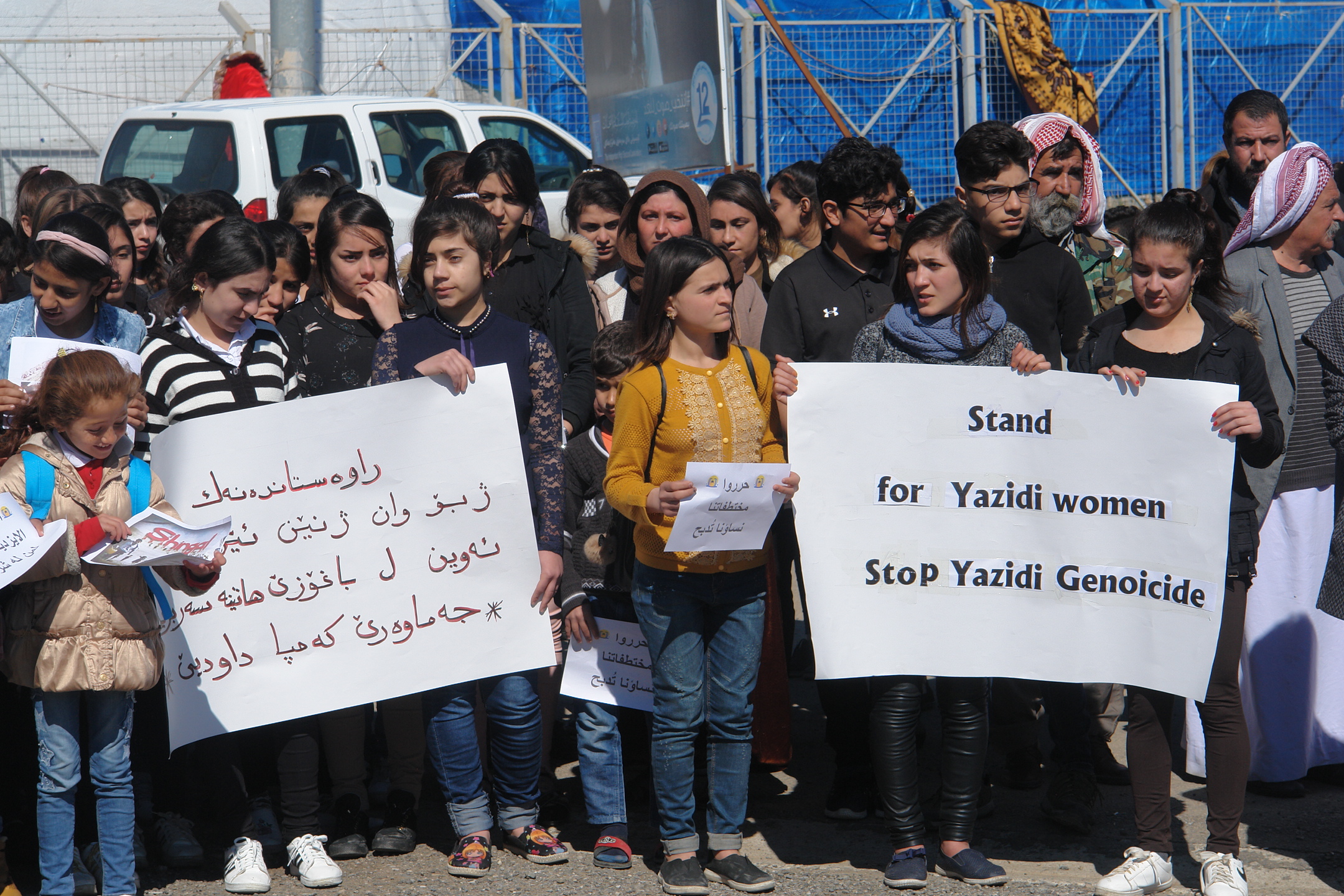The recent events in Syria have once again brought the issue of the kidnapped Ezidis to the forefront. According to a member of the Iraqi parliament, around 600 missing Ezidis are still captives in camps and prisons in Syria.
The calls to search for the kidnapped Ezidis in Syria come two weeks after the fall of the "Baathist" regime and the transfer of power to "Hay'at Tahrir al-Sham" HTS.
Ezidi member of the Iraqi parliament, Mahma Khalil, informed (KirkukNow), "We have accurate information about approximately 600 Ezidis in Syria, some in the Al-Hol camp and others in prisons."
He added that they have notified international organizations and the Iraqi government of the urgent need to investigate the fate of the missing Ezidis through an official committee visiting Syria.
Al-Hol camp, located east of the Syrian city of Hasakah, houses thousands of Iraqis, including wives and children of the Islamic State of Iraq and Syria ISIS militants. Ezidis have been found in the camp from time to time and returned to Iraq.
"We are in touch with the families of the kidnapped individuals taken by Daesh (ISIS) militants to Syria. We have reliable information, and it is the responsibility of the Iraqi government to disclose their fate."
He believes there has been negligence on the part of the government in this matter. The government ofiraq chaired by Prime Minister Mohammed Shia al-Sudani has shown great concern for the kidnapped Ezidis and has successfully liberated 10 individuals through one of its committees.
In August 2014, IS militants seized control of Shingal (Sinjar) district, home for the non-Muslim Ezidi community, kidnapped 6,417 Ezidis. 3,584 have been rescued so far, but the fate of the remaining kidnapped individuals remains unknown," according to statistics from the Kurdistan Regional Government KRG.
Hussein Qaidi, the head of the KRG Office for Rescue of Abducted Ezidis affiliated, told (Kirkuk Now) that "the search for the kidnapped Ezidis is ongoing, and we will continue our missions until every missing person is found."
He did not provide details of the search operations, only stating, "We are executing our plans."
This year, the cabinet of PM al-Sudani, announced an initiative to offer financial rewards to anyone providing information that aids in uncovering the fate of the kidnapped Ezidis. A special committee was previously formed by the government to follow up on the issue.
Shihab Ahmed, the head of the Shingal branch of the Department of Affairs for Ezidi survivors affiliated with the Iraqi government, told (KirkukNow), "The Sudani government has shown significant interest in the kidnapped Ezidis and has successfully liberated 10 individuals so far through one of its committees. The efforts are ongoing."
The ISIS attack on Shingal and Nineveh resulted in the deaths of 1,293 Ezidis and the destruction of 68 religious shrines. Around 90 mass graves have been discovered, along with numerous individual graves.
Under the Ezidi Survivors Law, which provides material and moral compensation to women and girls kidnapped by IS and subjected to various forms of violence and torture, the Iraqi government is committed to uncovering the fate of the kidnapped.
The Ezidi population in Iraq is estimated at 550,000 people, with over 100,000 having emigrated. The rest reside in IDP camps in the Iraqi Kurdistan Region IKR, or are scattered in the Sheikhan District (north of Mosul) and the Shingal District (120 km west of Mosul and administratively affiliated with the Nineveh province.





